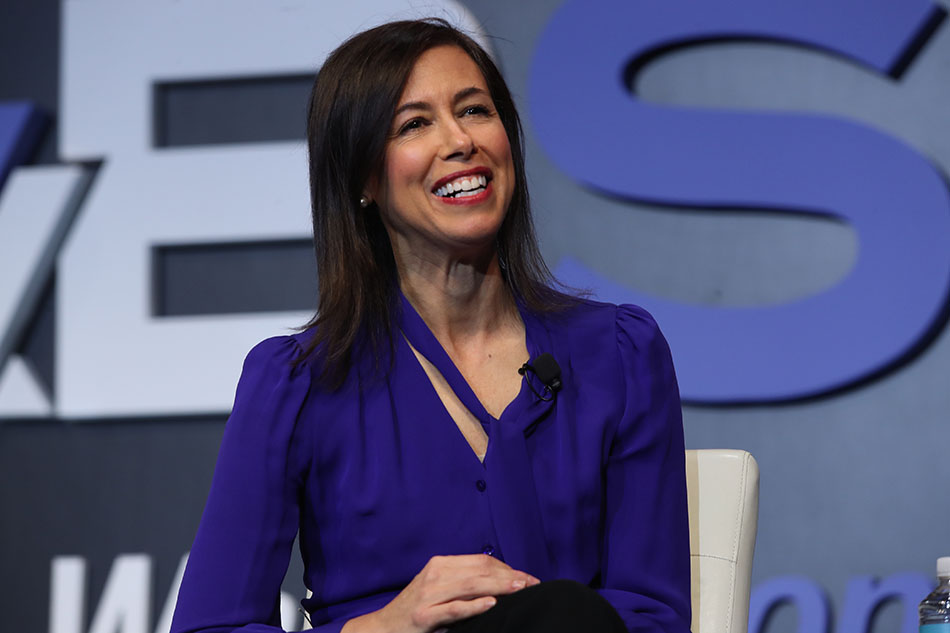FCC Chair ‘Exploring Options’ on New Streaming Regulations in Response to Congress
Agency pushed on extending good-faith rules to FCC, making ISPs pay into Universal Service Fund

The smarter way to stay on top of the multichannel video marketplace. Sign up below.
You are now subscribed
Your newsletter sign-up was successful
Video streamers and other edge providers are fighting a multi-front war in Washington lately, as Congress applies pressure on the FCC to apply good-faith negotiation rules to over-the-top content providers, as it does traditional video providers, and as hundreds of rural broadband providers and associations call on the agency to make edge providers contribute to broadband buildout subsidies.
A decade ago, the Federal Communications Commission wrestled with the issue of how and whether to regulate the over-the-top delivery of TV programming networks. Though Obama-era FCC chair Tom Wheeler opened a formal inquiry, and then reportedly got as far as working on an item that would define linear programming streams as multichannel video programming distributors (MVPDs), nothing materialized. In that case, the issue was online video provider access to content — MVPDs are subject to program access and carriage rules — and providng FCC-enforced access to vertically integrated programming to promote competition to traditional video.
With the backing of broadcasters, who have been trying to get more money for their online content, including by pushing for an antitrust exemption from Congress to negotiate for aggregated news content, Senate Commerce Committee chair Maria Cantwell (D-Wash.) last week wrote FCC chair Jessica Rosenworcel asking her to revive the inquiry, this time focused on good-faith negotiation rules related to edge provider aggregation of news content from print and broadcast sources.
Rosenworcel has recently suggested that Congress may have to step in to give the FCC the regulatory authority that the Cable Acts of 1984 and 1992 gave it over traditional video. since those laws did not apply to, or anticipate, OTT.
But she has apparently not ruled it out. "We are carefully reviewing the issue and exploring our options," said an FCC spokesperson.
Also Read: Could the FCC Make Video Streamers Pay Into the Universal Service Fund?
Even before Cantwell sent her letter to Rosenworcel, she and other top senators were sent a letter from hundreds of groups calling on Congress to require streamers and other edge content providers to pay into the Universal Service Fund that subsidizes advanced telecommunications buildouts in rural and other hard-to-reach areas. Currently, the fund depends on traditional landline phone service and its dwindling customer base. ISPs do not pay into the fund other than for their internet phone service offerings.
The smarter way to stay on top of the multichannel video marketplace. Sign up below.
“The edge provider companies derive enormous value from American families and businesses while contributing extraordinarily little or no financial support for the middle and last mile networks in rural areas,” according to a copy of the letter.
“We pay to connect to the internet and we pay to deliver traffic to our home office,” the letter said. “Then, we invest in our own networks and the last mile. Meanwhile, edge providers continue to send increasing amounts of traffic into our networks, which pushes against the limits of our capacity forcing expensive upgrades. Recovering those costs from our rural customers is very difficult or impossible, while the edge providers pay very little or nothing at all for the delivery of their traffic.”
INCOMPAS, whose members include Amazon, Facebook, Google amd Netflix, have argued that rather than going to the edge providers, the FCC should instead look at including ISPs in the Universal Service Fund (USF) subsidy pool, given that the subsidy money is being transitioned from landline phone service to broadband buildouts.
One argument against that move has been that the USF fees are passed along to consumers, so the inclusion of ISPs would raise consumers’ bills. That could discourage uptake of service regardless of how universal its availability is.
The Biden administration is pumping more than $60 billion in subsidies through various infrastructure-related programs to make sure that, by 2030, broadband is both universally accessible and affordable.
Contributing editor John Eggerton has been an editor and/or writer on media regulation, legislation and policy for over four decades, including covering the FCC, FTC, Congress, the major media trade associations, and the federal courts. In addition to Multichannel News and Broadcasting + Cable, his work has appeared in Radio World, TV Technology, TV Fax, This Week in Consumer Electronics, Variety and the Encyclopedia Britannica.

